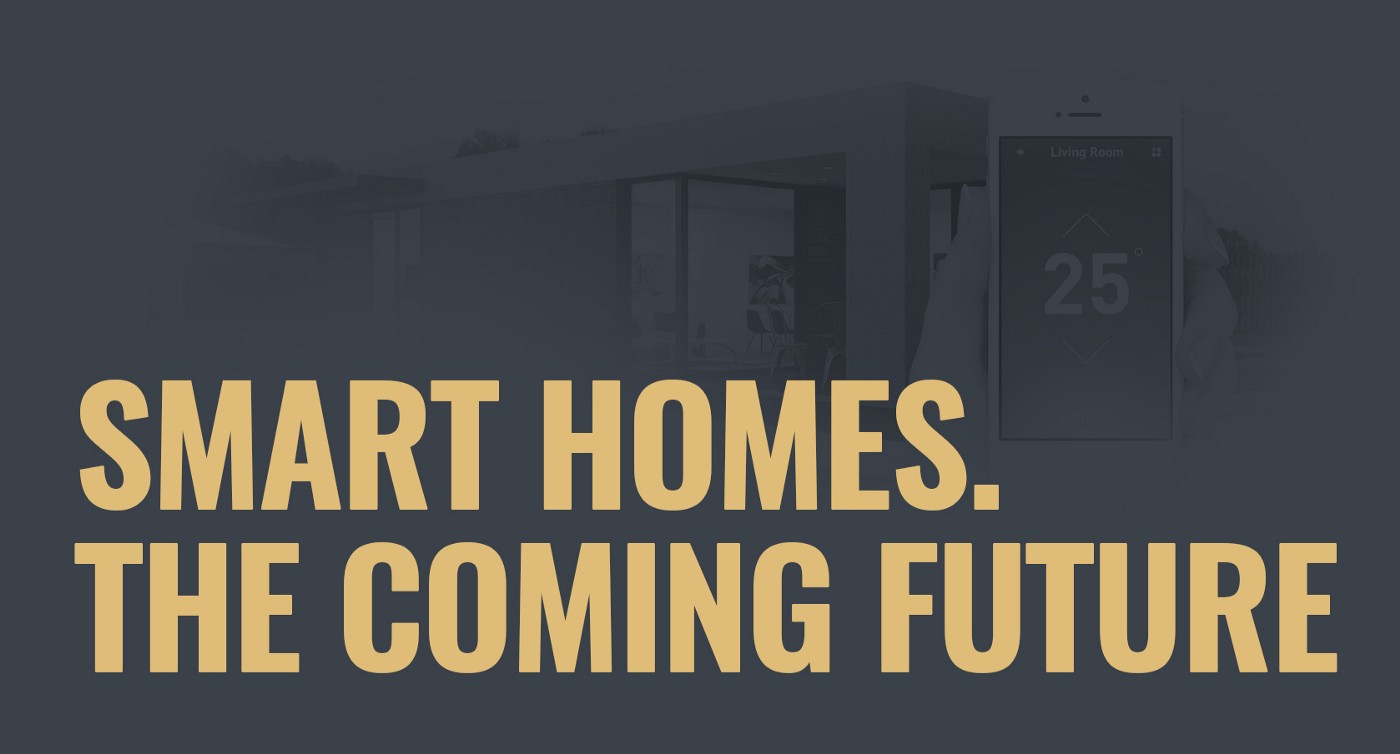Smart Homes. The coming future
Category: About

The world we live today is developing at much higher pace than most science fiction writers had predicted.
Most people had only dreamed about having an idea of having the control around the house with their smartphones which had been at infancy back in the day. The lights, the security systems, all the house services being controlled remotely.
Anyway, the last year had definitely seen the rise of the era of the smart home. Moreover, technology in this market continues to grow by leaps and bounds, and Zion Market Research predicts it will reach $53.45 billion by 2022.
Moreover, the ongoing 2018 holds even more promise for the smart home industry, as devices like Google Home, Alexa, and Amazon Echo become more commonplace and artificial intelligence becomes more sophisticated.
There are many trends which are rising throughout the industry. Makes sense highlighting most actual ones:
Smart Home Devices implementation
The new integration cycle can make or break smart home technology at large. Navigating goofy AI misunderstandings for 12 appliances and the front door is not the way of the future. However, can smart homes make sure you remembered to turn off all the lights? Lock up? De-activate alarms upon recognizing your face? No doubt that will see more integration that supports homeowners in 2018.
Artificial Intelligence is the ultimate helper
The existing video surveillance systems is excellent, but the AI being used to automate threat detection and maybe more proactively alert us if something goes awry will be of help for sure. Fact is, that would revolutionize the human aspect of remote video monitoring.
What about the surveillance?
Homeowners will like the idea of more cool ways to control their homes. Surveillance has become more necessary to combat crime, as more people work from home and want to protect their physical and intellectual property. Appliances also could be a focus since people would like their devices to take on more of the workload.
New smart home use cases
In 2017, the majority of applications revolved around security and thermostats, and the devices did not interoperate. In 2018, smart home device makers take a platform approach, and the devices will interoperate. Moreover, new use cases will emerge such as appliance diagnostics, energy conservation and the prevention of significant damages during natural disasters.
The data sharing
Sharing the data of homeowners with businesses will probably be the next big thing in smart home technology. Having your fridge order the food you need or setting the lights, and preferred temperature for your arrival is what is coming soon. The data that you share with the smart devices will be of great interest to the companies that build such products.
What about the customer service?
With more and smarter home devices entering the market, there is an opportunity for forward-thinking companies to use customer service as a differentiator. An IoT environment can present some challenges for consumers ranging from basic troubleshooting to privacy concerns. Companies that are innovative and knowledgeable about delivering customer service excellence will stand out.
Smart Kitchens
We are going to see more, and smarter kitchen gadgets come on the market, such as rice cookers that are connected to Alexa, smart crockpots and integrated apps. We’ll be able to ask Alexa how much time is left on the device or control them from our smartphones at work.
Smart spaces mobile
Naturally, the smart home tech will continue to become more accessible and inexpensive to the mainstream. As consumers become accustomed to the conveniences that come with smart tech, they will begin to seek out these efficiencies outside of the home. Next year, we’re likely to see an uptick in commercial smart building tech, particularly in offices seeking to adapt to more mobile workplace trends.
Increased Voice Control Integration
Home technologies will integrate into so much more of our daily lives. Voice control of technologies that are included in your phone, TV, home audio, and even car dashboard will be commonplace by the end of 2018. Voice is going to be the breakthrough advancement that allows these technologies to become ubiquitous.
No more “beta” products — the better alternatives
As more technology and innovations are brought to the market, automation will make the home experience more straightforward and more pleasant. Next year will see an increase in the gadgets released in the IoT sphere. However, as this technology is relatively new, the testing phase will see the cleaning out of multiple products that are replaced by better alternatives.
Recent news
-
Researching the Quantum events
23 Aug 2018
-
Machine Learning Explained
22 Aug 2018
-
Top Technology trends of 2018
17 Aug 2018
-
Big Data Explained
15 Aug 2018
